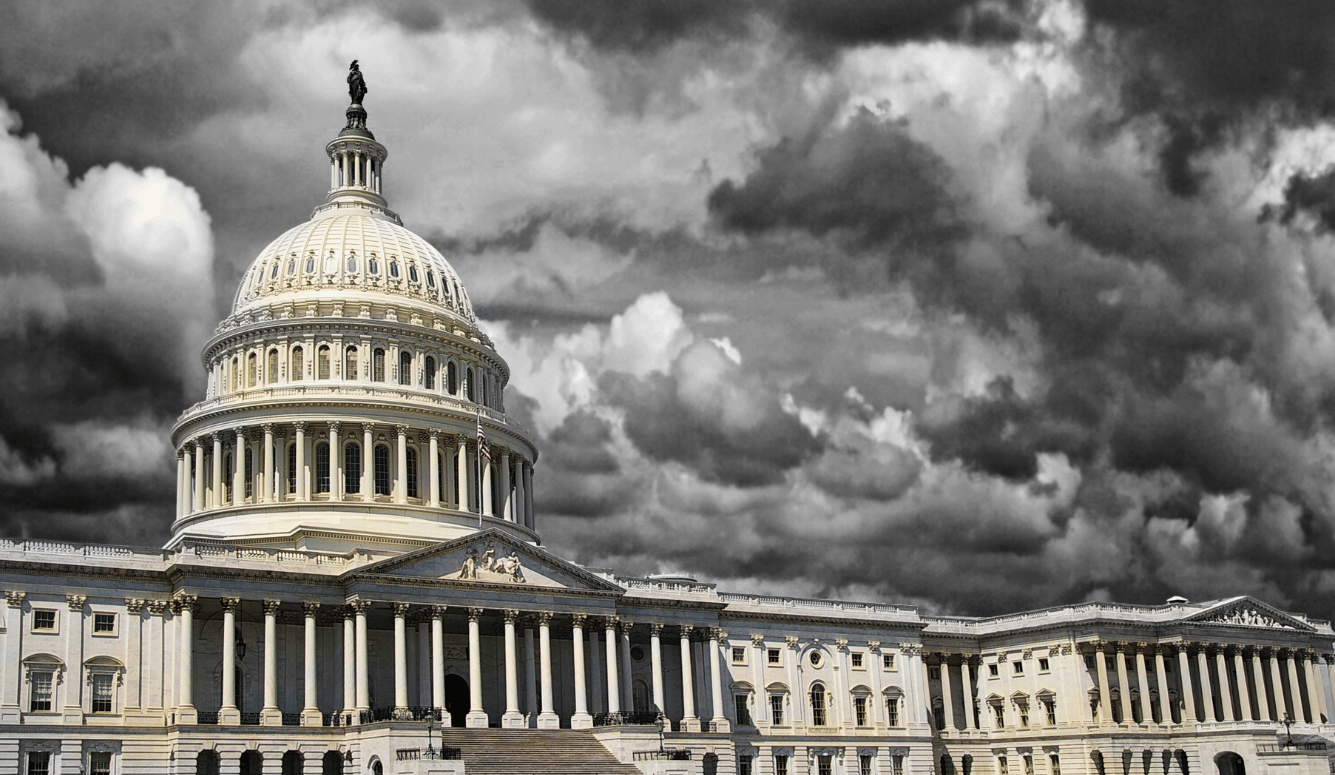Activism
Why the American Left Should Embrace Effective Altruism over Provincial Populism
Principle of impartiality, universalizability, equality, or whatever, we cannot discriminate against someone merely because he is far away from us.

I
After the global financial crisis, the Right seemed to know something the Left didn’t: how to channel post-recession outrage into political action. As Francis Fukuyama observed in a 2012 article: “Despite widespread anger at Wall Street bailouts, there has been no great upsurge of left-wing American populism in response.” The Occupy Wall Street movement sputtered while the Tea Party fueled one of the most sweeping Republican midterm victories in history, including the election of many insurgent hard-Right candidates.
Little did Fukuyama know that an upsurge of left-wing American populism was well on its way. Seven years ago, who could’ve imagined that Bernie Sanders would pose a serious primary challenge to the Clinton machine? Who could’ve predicted that the chairman of the DNC would describe Alexandria Ocasio-Cortez—a 29-year-old democratic socialist who was working at a bar a little over a year ago—as the “future of our party”?
It’s no surprise that left-wing populism is ascendant in the United States. Beyond the fact that Donald Trump has a special talent for enraging and energizing the activist Left, the social and political forces that catalyzed the Occupy movement are still very much with us. And the most powerful force of all is inequality.
For most Americans, real average wages have been stagnant for decades while income inequality has been steadily increasing. In 1970, the top 10 percent of Americans earned 6.9 times as much as the bottom 10 percent—now they earn 8.7 times as much. In 2016, the top 1 percent controlled almost 40 percent of the country’s wealth.
Inequality has become an obsession on the populist Left. Here’s what you’ll find prominently displayed on Sanders’s website: “The issue of wealth and income inequality is the great moral issue of our time, it is the great economic issue of our time, and it is the great political issue of our time.” Ocasio-Cortez often frames the issue in stark moral terms as well, as she did during a recent conversation with the writer Ta-Nehisi Coates: “I do think that a system that allows billionaires to exist when there are parts of Alabama where people are still getting ringworm because they don’t have access to public health is wrong.”
Unsurprisingly, this moral outrage is focused on poverty and affluence in the United States. When Sanders says inequality is the “great moral issue of our time,” he’s talking about inequality in the richest country in human history. When Elizabeth Warren calls billionaires “freeloaders” who need to “pick up their fair share,” she appeals to their sense of national solidarity: “That is your obligation. That’s part of the social contract. That’s part of being a citizen of the United States of America.”
You may be thinking: Of course American politicians talk this way—their constituents are Americans, aren’t they? Fair enough, but as long as they insist on using words like “moral” and “wrong,” they should ask themselves a simple question: If inequality in the United States is morally obscene, how should we feel about the much larger gap between affluent countries and the poorest parts of the world?

II
The median American worker earns around $32,000 per year—more than 96 percent of the planet. To be in the top 1 percent, Occupy protesters may be surprised to discover that you only need to earn $53,000 per year. Meanwhile, there are more than 700 million people living on less than $1.90 per day (adjusted for cost of living), most of whom don’t have access to clean water, enough food, or basic medical care.
As unpleasant as ringworm in Alabama is, the public health problems in the U.S. are nothing like the crises faced by the global poor. According to the World Health Organization, 6.3 million children under the age of 15 died in 2017—15,000 per day among children younger than five. The WHO reports that “more than half of these early child deaths are due to conditions that could be prevented or treated with access to simple, affordable interventions”—like the provision of rotavirus vaccines, bed nets to prevent the spread of malaria, and antibiotics to treat pneumonia and other infections. In sub-Saharan Africa, the likelihood that a child will die before the age of five is more than 15 times higher than it is in high-income countries.
The populist Left frequently emphasizes public investment in education. A year and a half ago, I traveled to Tanzania and visited several schools in and around Dar es Salaam and Morogoro (about 130 miles to the west of the former capital). If you want to see how sharp the disparities between the U.S. and the developing world are, peek into a few Tanzanian classrooms.
What would American parents say if their children were squeezed into a single classroom with 200 other students? Or if the school’s “windows” were just holes with metal bars over them? Or if there was no running water? Even at one of the nicer public schools I visited, the bathroom in the administrative office had a toilet that could only be “flushed” by pouring a bucket of water into a pit. This isn’t just an inconvenience—10 percent of girls in sub-Saharan Africa don’t show up for school during their menstrual cycle because they don’t have the proper facilities or sanitary products, and many never return.
As long as Americans are going to gravely suggest that inequality is the “great moral issue of our time,” the discussion shouldn’t be confined to inequality in their own country. As Peter Singer argued in his 1972 essay “Famine, Affluence, and Morality,” the physical location or nationality of a person in need is morally irrelevant: “If we accept any principle of impartiality, universalizability, equality, or whatever, we cannot discriminate against someone merely because he is far away from us.” The only relevant ethical questions are: How much are people suffering and what can be done to help them?
III
Last year, Congress approved $39.92 billion for foreign aid—less than 1 percent of the total budget. A much smaller proportion of that sum was allocated to humanitarian assistance. To put that amount in perspective: Warren has called for a 2 percent tax on the 75,000 richest households in the U.S. (3 percent for earnings over $1 billion)—a proposal she says will raise $2.75 trillion over the next decade.
GiveWell is a nonprofit that evaluates the cost-effectiveness of charities and recommends the ones that, by its metrics, are doing the most good (which is why it’s an important resource in the growing Effective Altruism movement). It currently lists eight top charities: the Malaria Consortium, Deworm the World Initiative, Against Malaria Foundation, Schistosomiasis Control Initiative, Helen Keller International, Sightsavers’ deworming program, The END Fund’s deworming program, and GiveDirectly.
The Against Malaria Foundation can provide an insecticide-treated bed net for $4.93, while the Malaria Consortium can give a person four months of antimalarial drugs for $6.93. The four deworming programs can treat children who suffer from various parasitic worms with interventions that cost between 37 cents and 99 cents per child. Helen Keller International delivers vitamin A supplementation—which can improve vision and prevent blindness—for $1.35 per person. GiveDirectly facilitates cash transfers straight to people in extreme poverty.
GiveWell publishes a range of cost-effectiveness estimates such as “cost per death averted.” Given the sheer number of variables and practical limitations involved, these estimates are rough, but they give us an idea of what could be done with substantial investments in effective international charities. For example, GiveWell estimates that the Against Malaria Foundation can save a life for every $4,115 it receives. The current figure for the Malaria Consortium is $2,296.
GiveWell also estimates how much money each charity could “productively use” over the next three years—from $1.7 million for Sightsavers’ deworming program to hundreds of millions of dollars for the Against Malaria Foundation. The combined total estimate for all eight charities isn’t even $1 billion (depending on exactly how much can be absorbed by the Against Malaria Foundation and GiveDirectly). Assuming Warren’s tax plan would, in fact, generate $275 billion per year, it doesn’t take much imagination to see what even a small proportion of that money would do for the poorest people in the world.
For the sake of argument, let’s say the Against Malaria Foundation could use $300 million over the next three years. Let’s also assume that GiveWell’s estimate of how much it takes to save a life is accurate. That would mean the $300 million investment would save almost 73,000 lives. Is it possible to think of a more ethical way to spend that money? If you care about inequality, shouldn’t you care about people who can’t even afford to spend $4.93 on a bed net that could save their lives or the lives of their children?
IV
The Right will doubtless be unsympathetic to many of the arguments I’ve presented here, but the populist Left’s provincialism is more puzzling. After all, many on the Left routinely remind us that “no human being is illegal” and tweet slogans like “No bans, no walls, no fences, no chains.” They argue for expanded refugee resettlement programs and more integrative, compassionate immigration policies. They call for the robust enforcement of international law. They’re hostile to nationalism, especially the version of it that exists in Trump’s America, Orban’s Hungary, etc. And they’re much less comfortable with inequality.
Are all human lives equally valuable? If you asked Sanders, Warren, or Ocasio-Cortez that question, wouldn’t the word “yes” come out of their mouths as naturally as the next breath? To use Singer’s words, if we accept any principle of impartiality, universalizability, or equality, no other answer is conceivable. If the populist Left truly believes in these principles, it should fight for equality at home and abroad.
Internationalism should be a core principle on the Left, and many left-wing causes are already global. For example, efforts to combat climate change (such as the implementation of a “Green New Deal”) affect everyone on the planet—people in developing countries most of all. Nuclear nonproliferation is another issue that transcends national borders. Warren argues for the development of “multilateral arms control and nonproliferation efforts for the twenty-first century, recommitting the United States to being a leader in the fight to create a world without nuclear weapons.” At a time when inequality is so politically salient, couldn’t the populist Left invoke the same spirit of internationalism to argue that the U.S. should lead a multilateral campaign to eradicate global poverty?
Advocates for greater U.S. assistance to the global poor can point to the overwhelming success of programs like the President’s Emergency Plan for AIDS Relief (PEPFAR), which has provided HIV testing services for 95 million people and antiretroviral treatment for 14.6 million people—interventions that have probably saved millions of lives. The U.S. has invested $80 billion in PEPFAR and Congress has reauthorized it three times since 2003, which demonstrates that American taxpayers are willing to pay for effective large-scale international aid programs.
But there are still many stubborn misconceptions about foreign aid. When the Kaiser Family Foundation asked Americans how much the government spends on foreign aid, the average answer was 26 percent—26 times the actual amount. No wonder 56 percent of respondents said foreign aid spending was too high and just 11 percent said it was too low. However, when respondents were told how much the U.S. actually spends, these numbers shifted dramatically—to 28 percent and 26 percent, respectively.
If major figures like Sanders, Warren, and Ocasio-Cortez started emphasizing the importance of reducing global inequality, they could educate Americans about what their government is (and isn’t) doing to help the world’s poorest people. But more importantly, they could start pushing our national conversation about inequality past our own borders.
Warren is running for president, and her announcement speech was all about inequality: “Today, in the richest country in the history of the world, tens of millions of people are struggling to get by. … It is not right.” After she said those words, a chant rose from the crowd: “It’s not right! It’s not right! It’s not right!” Over the next 21 months, we’ll hear all about inequality in the richest country in the history of the world. But if inequality is, in fact, the great moral issue of our time, we can’t pretend like the rest of the world doesn’t exist. Doing so may be politically expedient, but to quote Warren and her supporters, it certainly isn’t right.






